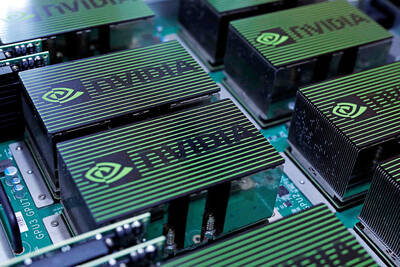InterContinental Hotels Group (IHG) has inked a management pact for Regent Hotels & Resorts (晶華麗晶酒店) in Kuala Lumpur, Malaysia, in a bid to expand the brand’s international reach.
The agreement came four months after IHG acquired a majority stake in Taipei-based Regent Hotels & Resorts from Formosa International Hotels Corp (FIHC, 晶華麗晶酒店集團) for US$60 billion to boost its global presence as the industry consolidates.
Regent Kuala Lumpur is to be situated next to the Tun Razak Exchange project, touted to be the next financial district of Kuala Lumpur and an extension of the city’s golden triangle known for its commercial, shopping and entertainment options, IHG said on its Web site.
IHG has relaunched the Regent brand to bring it into the top end of its portfolio.
“The new positioning and brand identity will allow us to take the brand to the world’s best destinations and help position Regent as a real leader within luxury hospitality,” IHG chief executive officer Keith Barr said at its rebranding event in Singapore on Thursday.
The company hopes to expand its global footprint in the fast-growing luxury segment, backed by the Regent and Kimpton brands, Barr said.
IHG intends to grow the Regent portfolio from six hotels to more than 40 in global gateway cities and resort locations, he said.
Plans are under way to rebrand InterContinental Hong Kong as a Regent hotel in 2021, IHG said, adding that the rebranding would see the hotel return to its roots, having first opened its doors as a Regent in 1980.
FIHC executive chairman Steven Pan (潘思亮) said he is glad IHG shares his vision about Regent and can already foresee what could be achieved via the alliance with one of the world’s largest hotel companies.
“It is an exciting time for the brand as we propel Regent back to worldwide reach and evolve the brand to appeal to luxury travelers,” Pan said.
FIHC is to focus on running Regent Taipei and other brands such as Silks Place (晶英酒店) and Just Sleep (捷絲旅) in Taiwan.

Leading Taiwanese bicycle brands Giant Manufacturing Co (巨大機械) and Merida Industry Co (美利達工業) on Sunday said that they have adopted measures to mitigate the impact of the tariff policies of US President Donald Trump’s administration. The US announced at the beginning of this month that it would impose a 20 percent tariff on imported goods made in Taiwan, effective on Thursday last week. The tariff would be added to other pre-existing most-favored-nation duties and industry-specific trade remedy levy, which would bring the overall tariff on Taiwan-made bicycles to between 25.5 percent and 31 percent. However, Giant did not seem too perturbed by the

AI SERVER DEMAND: ‘Overall industry demand continues to outpace supply and we are expanding capacity to meet it,’ the company’s chief executive officer said Hon Hai Precision Industry Co (鴻海精密) yesterday reported that net profit last quarter rose 27 percent from the same quarter last year on the back of demand for cloud services and high-performance computing products. Net profit surged to NT$44.36 billion (US$1.48 billion) from NT$35.04 billion a year earlier. On a quarterly basis, net profit grew 5 percent from NT$42.1 billion. Earnings per share expanded to NT$3.19 from NT$2.53 a year earlier and NT$3.03 in the first quarter. However, a sharp appreciation of the New Taiwan dollar since early May has weighed on the company’s performance, Hon Hai chief financial officer David Huang (黃德才)

NVIDIA FACTOR: Shipments of AI servers powered by GB300 chips would undergo pilot runs this quarter, with small shipments possibly starting next quarter, it said Quanta Computer Inc (廣達), which supplies artificial intelligence (AI) servers powered by Nvidia Corp chips, yesterday said that AI servers are on track to account for 70 percent of its total server revenue this year, thanks to improved yield rates and a better learning curve for Nvidia’s GB300 chip-based servers. AI servers accounted for more than 60 percent of its total server revenue in the first half of this year, Quanta chief financial officer Elton Yang (楊俊烈) told an online conference. The company’s latest production learning curve of the AI servers powered by Nvidia’s GB200 chips has improved after overcoming key component

UNPRECEDENTED DEAL: The arrangement which also includes AMD risks invalidating the national security rationale for US export controls, an expert said Nvidia Corp and Advanced Micro Devices Inc (AMD) have agreed to pay 15 percent of their revenue from Chinese artificial intelligence (AI) chip sales to the US government in a deal to secure export licenses, an unusual arrangement that might unnerve both US companies and Beijing. Nvidia plans to share 15 percent of the revenue from sales of its H20 AI accelerator in China, a person familiar with the matter said. AMD is to deliver the same share from MI308 revenue, the person added, asking for anonymity to discuss internal deliberations. The arrangement reflects US President Donald Trump’s consistent effort to engineer